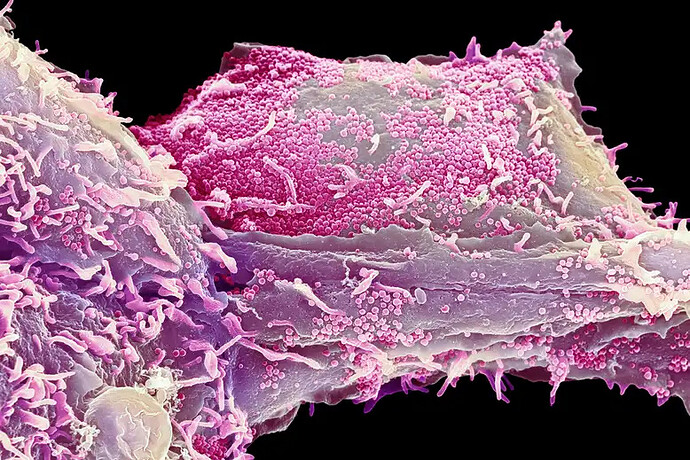An anonymous reader quotes a report from New Scientist:
Mini-brains grown in a dish rapidly develop signs of Alzheimer’s disease when infected with the common herpes virus that causes cold sores. The finding adds to growing evidence that some cases of Alzheimer’s disease are triggered by viruses and could potentially be treated with antiviral drugs. To understand how Herpes simplex virus-1 (HSV-1) might cause Alzheimer’s disease, Dana Cairns at Tufts University in the U.S., and her colleagues added the virus to clumps of brain tissue grown in dishes. They made the mini-brains by filling donut-shaped scaffolds with human stem cells that were then coaxed into forming brain cells.
Within three days of being infected with HSV-1, the mini-brains developed large beta-amyloid plaques reminiscent of those found in the brains of people with Alzheimer’s disease. They also showed other signs of the condition, such as inflammation and loss of brain cells. In contrast, when the mini-brains were treated with valacyclovir – a commonly-used herpes drug – they seemed to be protected against HSV-1 damage. This finding lends support to a clinical trial that is currently underway in the U.S. testing whether valacyclovir helps to treat Alzheimer’s disease in people who also have HSV-1, says Cairns. One unresolved question is why HSV-1 – which is found in about two thirds of people under 50 – seems to invade the brains of some people but not others. People with weaker blood-brain barriers due to age or genetic factors may be more at risk, says Cairns. The findings have been published in the journal Science Advances.

 !
!